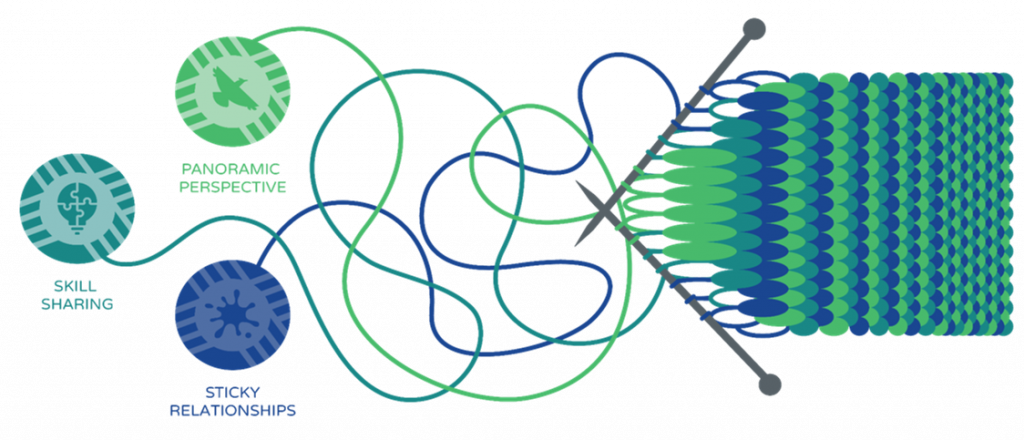
Common Impact has designed hundreds of meaningful skills-based volunteer partnerships over the years, and has watched them sustain far past the individual projects that initially bring business and nonprofit professionals together. Along the way, we’ve asked ourselves a few questions.
- What makes some skills-based engagements work better than others?
- When do we see partnerships move from transactional to transformational?
- How can we fully capture the knowledge and talents that exchange hands during successful skills-based partnerships?
What has emerged from nearly twenty years of practice is something Common Impact calls the “The Knitting Factor,” coined in our Stanford Social Innovation Review article, “The Promise of Skills-Based Volunteering. The Knitting Factor brings together three key conditions that enable skills-based engagements between the private and nonprofit sectors to create strengthened, sustainable solutions that don’t come undone when partners part ways.

A Panoramic Perspective
Taking a bird’s eye view when crafting partnerships, by looking at people and organizations beyond their titles and sectors and allow value to transcend profit.

Skill Sharing
A focus on two-way talent exchange, where pro bono professionals and their companies are learning as much from the nonprofits they work with as those nonprofit leaders and organizations learn from them.

Sticky Relationships
A commitment to building long-lasting partnerships that drive missions and business forward.
While most companies and nonprofits easily understand the potential value of these sustainable cross-sector partnerships, embarking on them in practice can be challenging. Common Impact can help you build success partnerships and provide you with the framework, tools and stories you need to knit skills-based volunteering into your everyday practice of building your organization – whether you’re at a large company or an entrepreneurial nonprofit.


